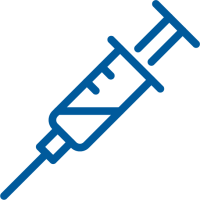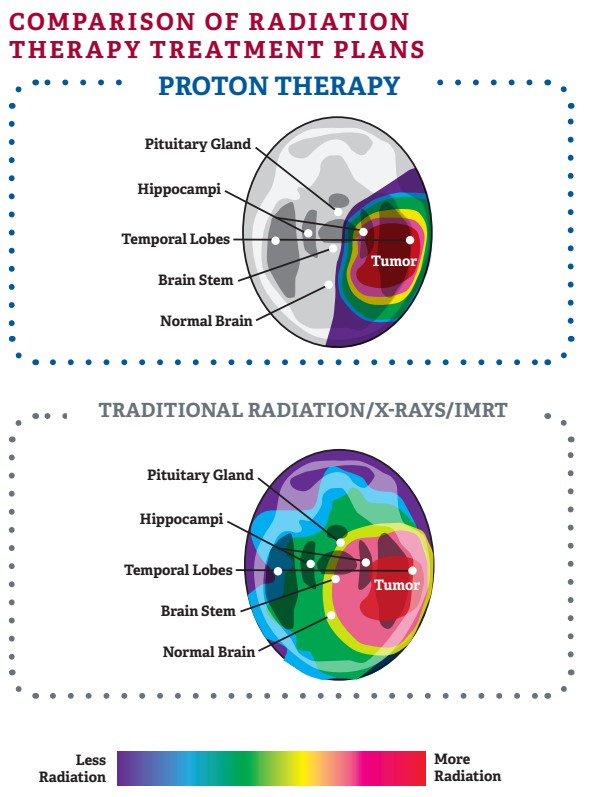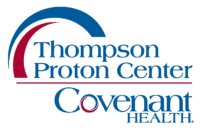Proton therapy for brain & CNS cancer
- Maintains quality of life
- Lower risk of side effects
- Decreased impact on surrounding tissue
- Reduced radiation exposure
- Controlled placement & dosage
- Treatment of complex tumors
- Treatment near sensitive organs
Precise Cancer Treatment
Cancer Treatment that allows patients to maintain their quality of life by reducing risks of side effects.
Proton therapy allows physicians to minimize radiation to important structures around the tumor that impact memory function or hormone regulation, such as the hippocampi, areas of the temporal lobe, and the pituitary gland. Depending on the location of the tumor, the precision of proton therapy may allow patients to maintain their vision or their hearing by avoiding unnecessary radiation to the optic nerve or sensitive auditory structures.
A care coordinator will contact you by phone during normal business hours.
Proton Therapy for Brain/CNS Cancer
Precise Cancer Treatment
Cancer Treatment that allows patients to maintain their quality of life by reducing risks of side effects.
Proton therapy allows physicians to minimize radiation to important structures around the tumor that impact memory function or hormone regulation, such as the hippocampi, areas of the temporal lobe, and the pituitary gland. Depending on the location of the tumor, the precision of proton therapy may allow patients to maintain their vision or their hearing by avoiding unnecessary radiation to the optic nerve or sensitive auditory structures.
A care coordinator will contact you by phone during normal business hours.
Proton Therapy for Brain/CNS Cancer

Particularly effective in treating brain, spine, and skull base tumors
Because the brain is in close proximity to other critical organs and parts of the nervous system, brain tumors require precise treatment and care. While surgery, chemotherapy and/or standard X-ray radiation may be used to treat brain tumors, proton therapy’s ability to precisely target a tumor makes it an ideal treatment option for patients to consider.

Precise treatment with fewer side effects
Proton therapy is an advanced form of radiation therapy that precisely treats the tumor using proton particles instead of x-rays. Protons do not deposit radiation beyond the tumor they are targeting, causing less damage to healthy tissue. Reducing unnecessary radiation results in fewer treatment-related side effects.

Maintain quality of life during & after treatment
Because proton therapy reduces treatment-related side effects, most patients are able to maintain their levels of pre-treatment activity throughout treatment.

- 31% increase in disease control for aggressive tumors at base of skull (chordomas) at 5 years
- 50% less likely to have secondary brain tumor from treatment
- 55% reduction in average dose to the hippocampi (memory function) in treatment of meningioma
Compared to other forms of radiation therapy, proton therapy results in less radiation to normal brain tissue, so patients experience fewer side effects.
Why Proton Therapy is particularly effective in treating Brain/CNS tumors
The precision of proton therapy targets the tumor but minimizes or eliminates radiation to healthy brain, central nervous tissue, glands, and other delicate structures so patients experience fewer side effects from treatment.
Brain and CNS tumors most appropriate for proton therapy:
- Gliomas (astrocytomas)
- Oligodendrogliomas
- Ependymomas
- Medulloblastomas
- Pineoblastomas
- Menigiomas
- Acoustic Neuroma
- Chordoma and Chondrosarcoma
- Spine
- Reirradiation and certain Oligometastatic Diseases
- Supratentorial PNET
- Germ cell tumors
- Pituitary gland tumors
- Almost all pediatric brain tumors

Brain and CNS cancer treatment with protons compared to treatment with conventional radiation/X-rays/IMRT
With proton therapy, much of the healthy tissue and critical organs surrounding the tumor are spared from receiving additional radiation. Some of the normal brain tissue receives 50% less radiation than with conventional radiation/X-rays/IMRT.

What is proton therapy?
Proton therapy uses charged particles (protons) rather than x-rays to selectively destroy cancer cells. This results in excellent rates of cancer control with a much lower risk of side effects compared with other forms of radiation therapy.
What makes proton therapy different?
Proton therapy is a highly advanced and extremely precise form of radiation. The physical properties of protons, described by the Bragg-Peak (Figure 1 down below on page), and the increased conformality of pencil beam scanning make it possible to spare healthy surrounding organs from unnecessary radiation exposure during treatment.
Why is this important?
Proton therapy allows physicians to minimize radiation to important structures around the tumor which affect memory function or hormone regulation, such as the hippocampi, areas of the temporal lobe, and the pituitary gland. Depending on the location of the tumor, the precision of proton therapy may allow patients to maintain their vision or their hearing by avoiding unnecessary radiation to the optic nerve or auditory structures.
Is proton therapy effective?
Yes! Many clinical studies have demonstrated the effectiveness of proton therapy for treating brain & CNS cancer.
Less radiation, better quality of life
Proton therapy deposits less radiation dose before reaching the tumor, then deposits the prescribed dose within the tumor, and has no exit dose.
X-ray radiation must start with a higher dose that gradually declines to the prescription dose at the tumor, then continues to deposit radiation in healthy surrounding tissue as it exits the body.

Committed to our cause since 1985
The Thompson Cancer Survival Center Story
World-Class treatment, right in Knoxville, TN
Thompson Proton Center is one of less than 50 proton centers in the entire world. And, we’re proud to be members of Thompson Cancer Survival Center, where leading cancer specialists use the most advanced technologies and treatment methods to achieve breakthrough successes. Our network of cancer care providers are supported by a team of patient navigators, oncology pharmacists, dietitians, genetics counselors, clinical trials experts, physicists, therapists, technologists, and nurses with one goal: to treat and beat your cancer.
Our leading oncologists
You’re in good hands with Thompson Proton Center

Radiation Oncologist
and Medical Director
Ryan Grover, MD
Residency:
Radiation Oncology
Loma Linda University Medical Center
Medical School:
University of Southern California

Radiation Oncologist
Brion Shin, MD
Residency:
Radiation Oncology
Loma Linda University Medical Center
Medical School:
Loma Linda University Medical Center

Radiation Oncologist
Allen Meek, MD
Residency:
Radiation Oncology
Johns Hopkins University
Medical School:
Johns Hopkins University
- Fill in our quick form
- A care coordinator will contact you by phone during normal business hours.
- We’ll take the time to listen and plan the next steps
A care coordinator will contact you by phone during normal business hours.

